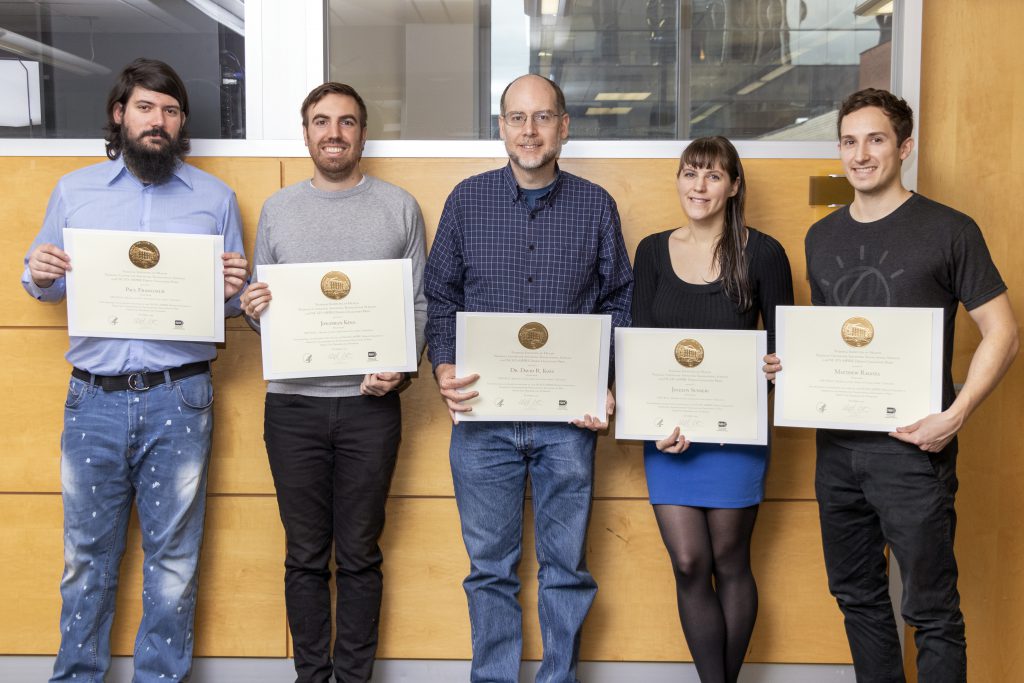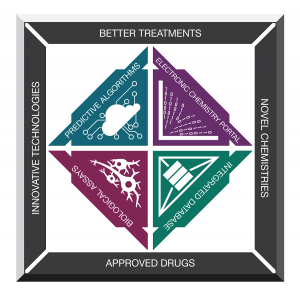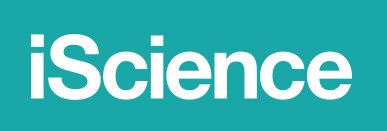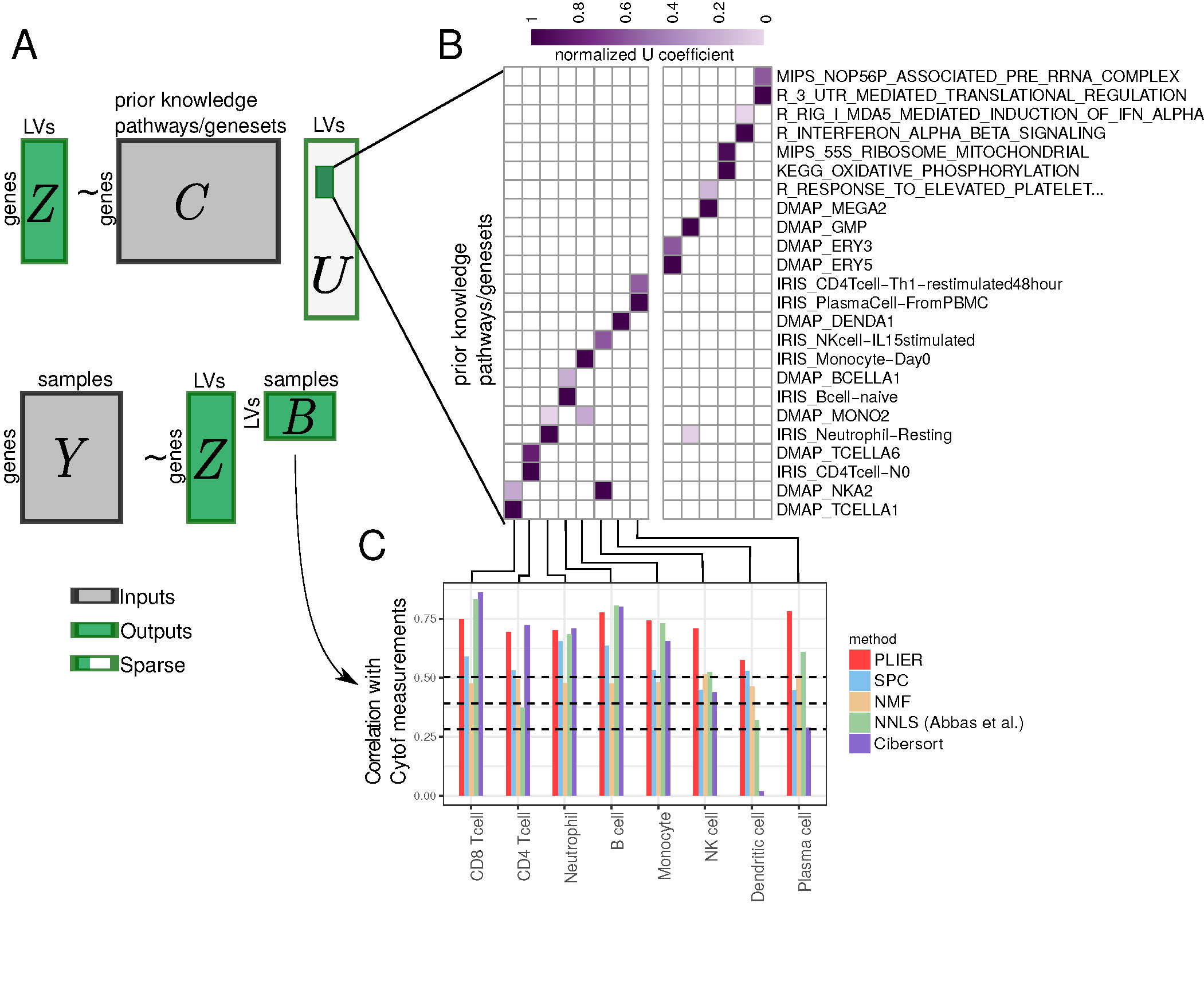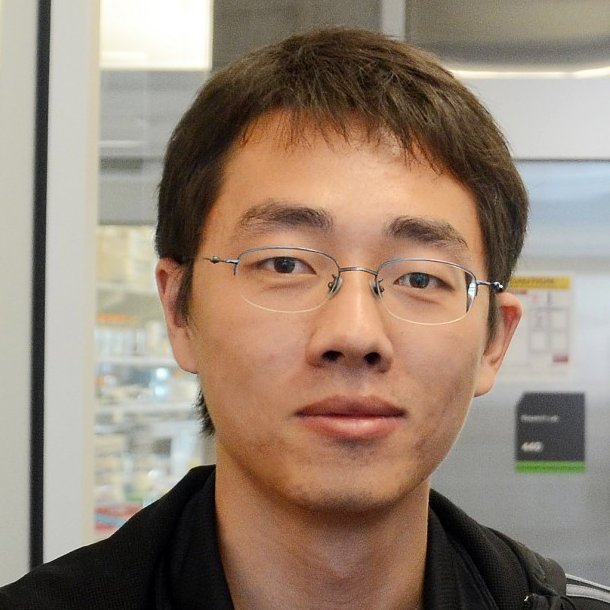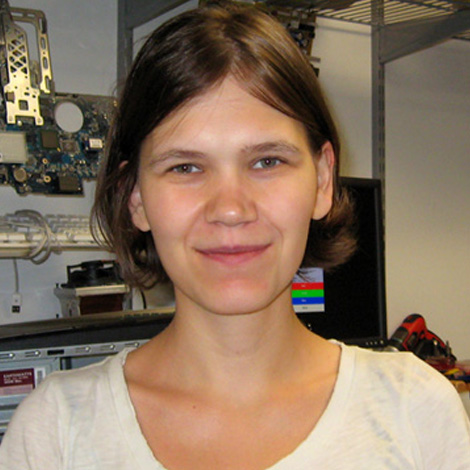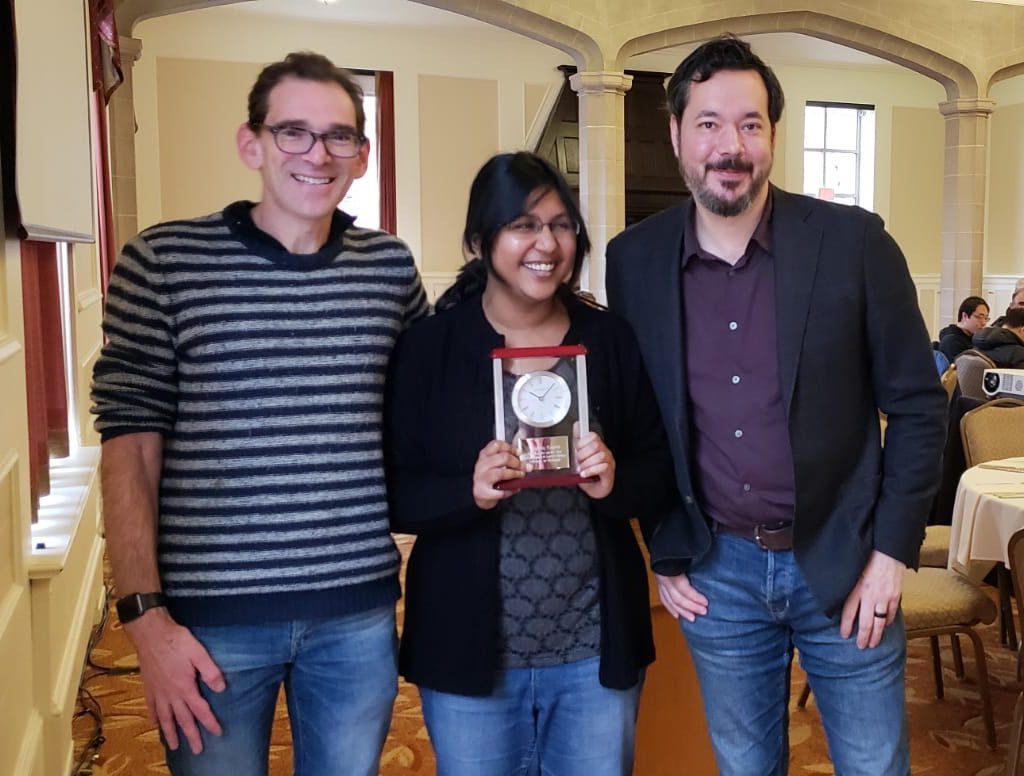
Sanjana here with her co-advisors, Dr. James R. Faeder (l) and Dr. Robin E.C. Lee (r).
Sanjana Gupta received the DCSB Best PhD Student of the Year Award for 2019 at the CSB Annual Appreciation lunch held at the University Club on Pitt’s Oakland campus, December 4, 2019. She was nominated by her co-advisors, Dr. James R. Faeder and Dr. Robin E.C. Lee for her current work on addressing the question of parameterization of mechanistic models of signal transduction. Sanjana has developed an approach based on Lasso regularization commonly used in genomics to fitting mechanistic models in order to obtain reduced or parsimonious models that describe cellular responses under specific conditions. An abstract describing this work was accepted for a talk at the recent Q-bio Conference and her presentation there was very well-received. Several members of the science community contacted both Jim and Robin to express their enthusiasm with Sanjana’s presentation and current research. A pre-print of this work is available on bioRxiv, Parallel Tempering with Lasso for Model Reduction in Systems Biology. A manuscript of that preprint is under revision with PloS Computational Biology. Overall, Sanjana has made outstanding progress in her research during the previous year and is poised to publish several papers in the beginning of 2020 that will have a strong impact on the entire systems biology community. Congratulations Sanjana!

